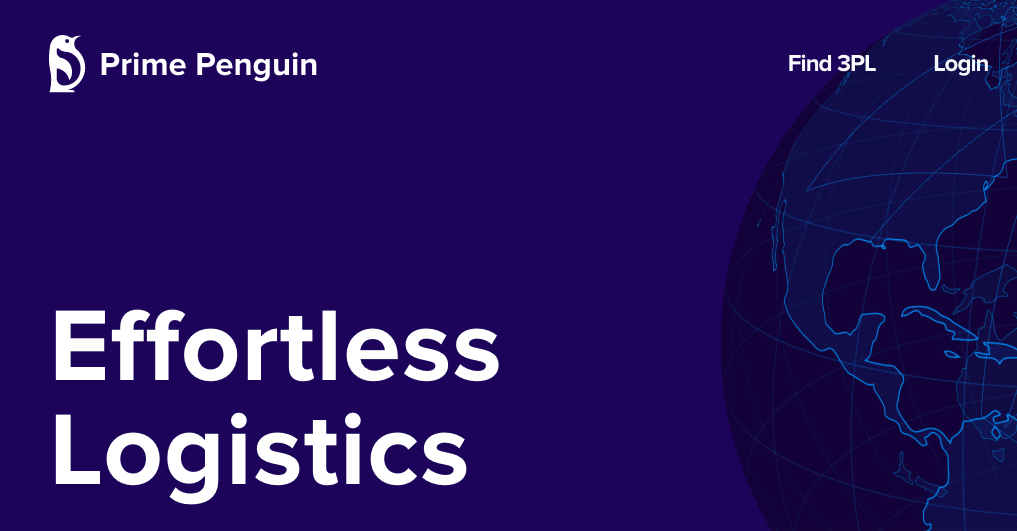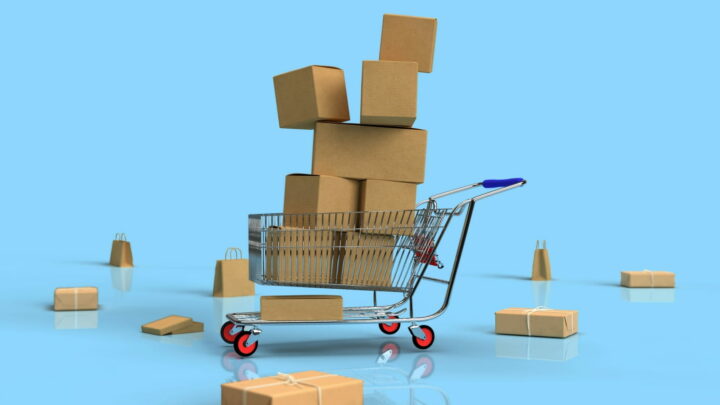An outlook on e-commerce logistics – What industry changes can we expect in 2022?
Written by
Editorial TeamPublished on

The pandemic has made a huge impact on our everyday lives in multiple aspects. In business, we have seen some industries thriving while others have fallen.
E-commerce and third-party logistic services are however predicted to have a bright outlook!
One industry that has gained a real boost is e-commerce and therefore the need for e-commerce logistic services. The latest restrictions have rapidly sped up online retail and direct-to-consumer (D2C) business models. As e-commerce supply chains are evolving, Third-Party Logistics also known as TPL or 3PL companies are too. As e-shops are growing and increasing their order volumes so is the need to outsource their fulfillment process.
With e-commerce reducing the distance between consumers and stores, international markets present an enormous opportunity and cross-border e-commerce sales are estimated to reach $627 billion in 2022.
The global shift in the economy and the growing demands of the e-commerce sector have also put pressure on logistics companies and supply chains. Several new trends are predicted in the industry and those players that are able to adapt will thrive.
In 2022, as most of the world is getting adjusted to the “new normal”, 3PL companies are adapting to the new ways of operating and increased productivity.
These are some trends we are likely to see in 2022:
Increased demand for 3PL services
The demand for 3PL companies is expected to follow suit as more purchases are moved online. A recent Allied Market Research report found that the global third-party logistics market is expected to reach $1.1 trillion over the next six years. As the world is becoming more global, so are our shopping patterns. Logistic companies that provide warehouses in multiple locations are predicted to be in higher demand as they offer more efficient order processing by being closer to the end customer.
Micro warehousing and close to end consumer storage
In 2022, we are likely to see more micro warehouses, especially in urban areas. Order fulfillment will improve if sellers can store products in more than one location, closer to end customers. This improves order routing efficiency and can drastically minimize the use of carbon emission transportation. Supply chains that use more than one warehouse will be able to cater to increases in order volumes, have better distribution of inventory and make use of segregation and shorter delivery times. This also helps sellers organize their inventory and enhance the efficiency of inventory management. In all, micro warehousing and close to end consumer storage is proven to improve the speed of delivery and have a positive impact on the climate.
Internet of Things and access to Big Data in supply chain management
The importance of access to data and IoT in supply chains will continue to increase in 2022. Players who are good at gathering and analysing Big Data will lead the industry. Big data can help 3PL companies aggregate and analyze entire supply chain data while IoT enables brands and retailers to identify the impediments in their supply chain and address them. The access to correct and timely data will be key to making informed decisions and reducing inefficiencies in supply chains. Collecting and taking action on consumer data and setting up automatic processes for customers on inventory management and stock level control will also be key in keeping a competitive advantage against competition. Real-time locating systems have exploded in popularity without much surprise, too.

Technology and automation driving the industry
Logistics technology, or Logtech, will be the driving force of the industry to speed up productivity and reduce waste and time through the whole fulfillment process. In 2022, the automation of processes is predicted to continue and several manual processes and jobs will be replaced by AI and machine learning. SaaS logtech companies are steadily growing and evolving the industry with innovative solutions to old problems.
Prime Penguin provides their e-shop clients with a cost-efficient solution to connect their store with several warehouses around the globe. We help you procure, outsource and control all your logistics in a digital and cloud-based interface. By leveraging a network of pre-integrated logistics partners and market-leading integration technology. The Prime Penguin Platform makes sure correct data is flowing between the sales channels and the warehouse management system (WMS) and keeps track of inventory levels and order status.
CONTACT US today to find out more about our services and request a free price quote.

Towe Ahrnbom is a Digital Marketing Manager at Prime Penguin, a SaaS company in Logistics Technology. Prime Penguin was founded in 2016 in Stockholm and delivers innovative solutions for e-commerce fulfillment. Towe holds a master of science in Marketing and Management from Stockholm School of Economics. She has several years of experience working in SaaS startups in Sydney, Australia specializing in Digital Growth Marketing.


